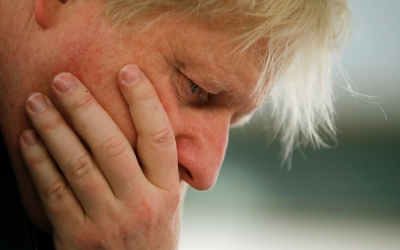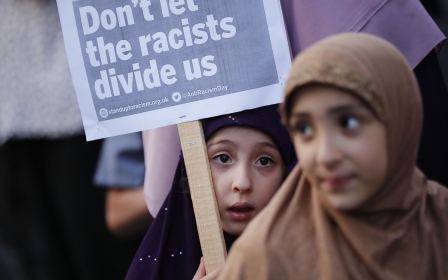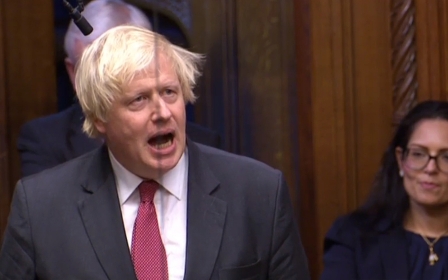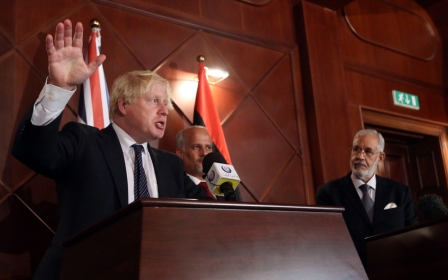Everyone but Boris: Where do the Conservative Party candidates stand on Islamophobia?
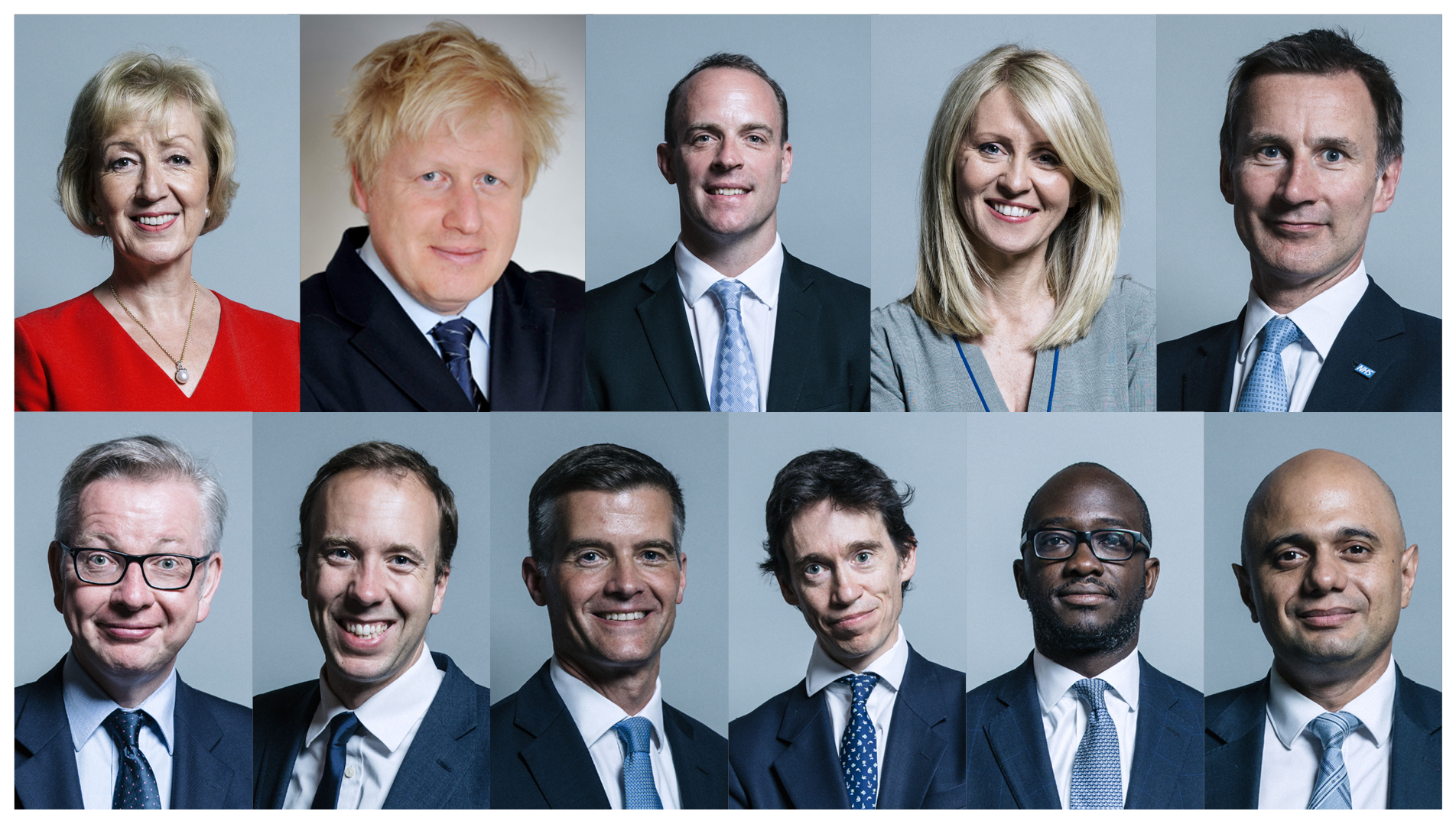
British Prime Minister Theresa May has triggered a leadership election in the governing Conservative Party by formally resigning as leader.
So far 11 candidates have thrown their hats into the ring with final nominations set to close on Monday.
Middle East Eye approached each candidate with an invitation to answer questions concerning complaints of Islamophobia within the party, as well on the issue of Islamophobia more broadly.
Sayeeda Warsi, a former co-chair of the party and the first Muslim woman to hold a cabinet post in the British government, has repeatedly called for an independent inquiry into the issue.
Last week the Muslim Council of Britain, an umbrella organisation representing hundreds of Muslim groups and mosques, submitted an official complaint to the Equality and Human Rights Commission.
MEE asked each candidate whether they believed there was a problem of Islamophobia within the party and whether they backed calls for an independent inquiry into the matter, as called for by Sayeeda Warsi.
Islamophobia is rooted in racism and is a type of racism that targets expressions of Muslimness or perceived Muslimness
- APPG definition of Islamophobia
We also asked them whether they agreed with a definition of Islamophobia suggested in a report last November by the All-Party Parliamentary Group on British Muslims, a cross-party group of MPs, and whether they felt it should be adopted by the government.
The APPG definition is as follows: "Islamophobia is rooted in racism and is a type of racism that targets expressions of Muslimness or perceived Muslimness."
The government said the definition required "further careful consideration" and had "not been broadly accepted".
We also asked the candidates whether they felt two Tory councillors recently accused of making Islamophobic comments should be suspended from the party.
One of them in fact was reported to have been suspended on Friday after the questionnaire had been sent out and many of the responses had already been received.
All but one of the candidates responded to the MEE questionnaire.
Front-runner didn't respond
Only Boris Johnson, the former foreign secretary who is currently considered to be the front-runner in the contest, failed to do so.
This was despite the fact that Johnson was last year at the centre of a controversy surrounding a newspaper column in which he compared Muslim women wearing the face veil to letter boxes and bank robbers.
Johnson, an outspoken critic of Labour leader Jeremy Corbyn over the opposition party's handling of complaints of anti-Semitism, was approached multiple times by MEE but did not respond.
Four other candidates confined themselves to giving brief statements. These were Jeremy Hunt, Sajid Javid, Dominic Raab and Sam Gyimah.
The rest gave full responses to our questions, which we have published in their entirety.
Only Mark Harper, a backbench MP and former junior minister, denied point-blank that the Tory party has a problem with Islamophobia.
Javid, who as home secretary in the government became the first British Muslim to hold one of the great offices of state, said there was nothing "inherent in the Party that lends itself to Islamophobia".
Rory Stewart, the international development minister, said there is not a "generalised problem," while Esther McVey, a backbench MP, told MEE that reported instances are "not widespread".
Matt Hancock, the health secretary, and Raab, another backbench candidate, both responded saying they would review party procedures. Other candidates were highly critical of Islamophobia but stopped short of criticising or defending the party.
None of the candidates gave full support for the APPG definition. Javid does not believe the APPG definition is "workable". McVey said she does not agree with the APPG definition and that "we must protect free speech," while Hancock called it "too vague".
None of the candidates supported an immediate independent inquiry into Islamophobia in the party, though Andrea Leadsom, until late last month the Leader of the House of Commons, and McVey were open to the idea after further investigation. Hancock said he would take "appropriate independent advice and review all previous cases".
Michael Gove, the environment secretary, declined to answer the question, stating that independent organisations should "make their own decisions".
Others, including Foreign Secretary Jeremy Hunt, Raab and backbencher Gyimah, dodged the question completely.
Hancock was the only candidate who felt that the councillors concerned should be immediately suspended, saying "these statements are clearly completely unacceptable".
Others including Gove, Leadsom and Stewart, backed an investigation into the comments. Hunt, Raab and Javid were among those who declined to answer the question.
In a statement calling on the Equality and Human Rights Commission to investigate the Conservatives over Islamophobia, the Muslim Council of Britain said that more than 150 examples of Islamophobia in the party had been cited.
"We have taken this step after an unprecedented number of cases have been brought to our attention, suggesting a culture within the Conservative Party where Islamophobia is not only widespread, but institutional," said Harun Rashid Khan, the council's secretary general.
Middle East Eye propose une couverture et une analyse indépendantes et incomparables du Moyen-Orient, de l’Afrique du Nord et d’autres régions du monde. Pour en savoir plus sur la reprise de ce contenu et les frais qui s’appliquent, veuillez remplir ce formulaire [en anglais]. Pour en savoir plus sur MEE, cliquez ici [en anglais].


